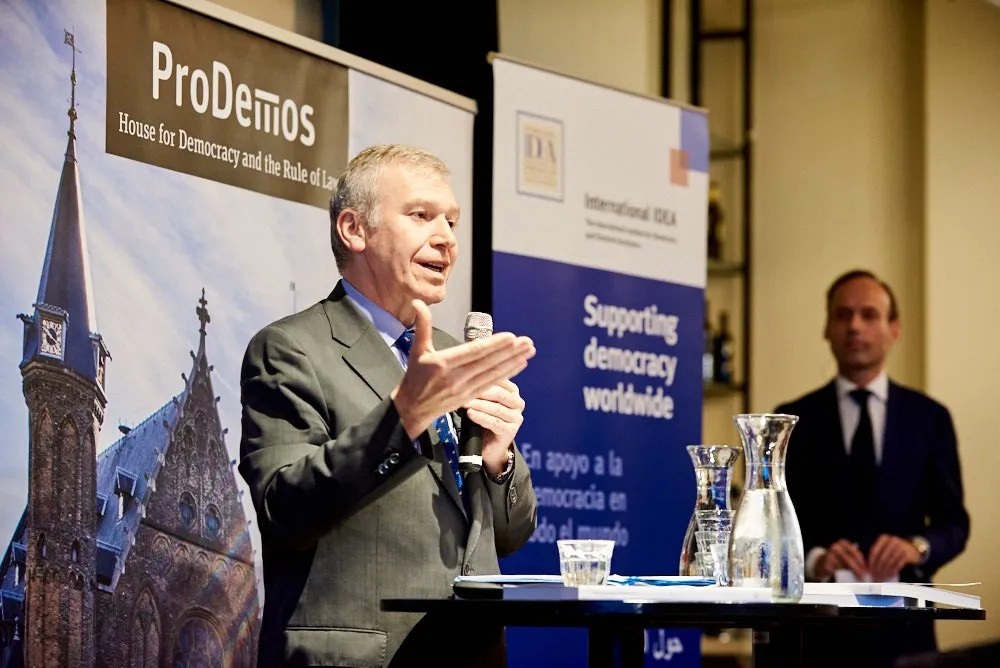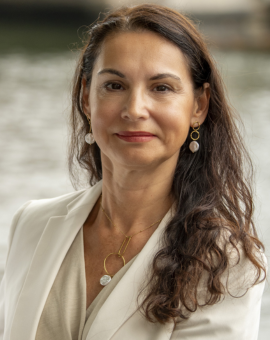Launch of International IDEA's Global State of Democracy Report in The Hague

On Thursday 16 November 2017, the Secretary-General of International IDEA, Yves Leterme, visited The Hague, the Netherlands, to launch International IDEA´s new flagship publication, the Global State of Democracy: Exploring Democracy´s Resilience. This publication will be published on a bi-annual basis and provides a "health check" on how democracy is faring worldwide. It also includes a newly developed democracy indices that measures five key attributes of democracy and their evolution since 1975 until today, focusing on the dimensions of representative government; impartial administration; checks on government; fundamental rights; and participatory engagement. While the report focuses mainly on global and regional trends, the indices also find that Dutch democracy is healthy, but will only remain so with more investment in active citizen involvement.
The launch, which is part of a series of global launches of International IDEA’s new flagship publication, was organized at ProDemos, a leading Dutch organization that helps explain democracy and aims to inform citizens about how they can exert influence on political processes. The event was opened with a welcoming address by Eddy Habben Jansen, the director of ProDemos. In his opening remarks, Habben Jansen, stressed the importance of citizenship for a healthy democracy. It is citizens, he noted, rather than institutions alone, that make democracies work.
Following these introductory remarks, Leterme, presented the main findings of the Global State of Democracy report to the audience. "Democracy worldwide", he stated, "has proven to be resilient over time, but also faces challenges that need to be tackled". These include modern democratic backsliding, the rise of populism and nationalism, enduring corruption, and decreasing levels of trust in traditional democratic institutions.
"Democracy", Leterme stressed, "cannot be taken for granted", and countries have to continue working on the resilience of their democracies.
After presenting the global findings of the report,Leterme also devoted attention to the state of democracy in the Netherlands. The country has had higher scores than the regional and global averages on most aspects of democracy. The Netherlands have moreover done particularly well on the space for political renewal, and new political parties have good opportunities to enter the democratic political system. The Netherlands does, however, score low on several aspects related to participatory engagement, he noted, especially in the area of direct democracy.
Following Leterme´s presentation, reflections on the report and its findings were provided by Sarah de Lange, professor of Political Science at the University of Amsterdam and Maurice Adams, professor of Democracy and the Rule of Law at Tilburg University.
Professor De Lange shed more light on the dangers that are posed by political leaders manipulating the instruments of democracy. This, she noted, is luckily not the case in the Netherlands, but there too people have started questioning the democratic rules of the game. It is therefore essential, she stressed, that democratic institutions actively promote democracy, and spread its values among citizens.
Adams, subsequently, stressed the importance of active citizenship, which must be supported if democracies are to stay healthy. Active citizenship, he stated, cannot be taken for granted, calling for the establishment of a State Commission to investigate how active citizenship and participation can be strengthened and increased in The Netherlands.
The Global State of Democracy Report can be downloaded on www.idea.int/gsod, where the indices database also can be found.




